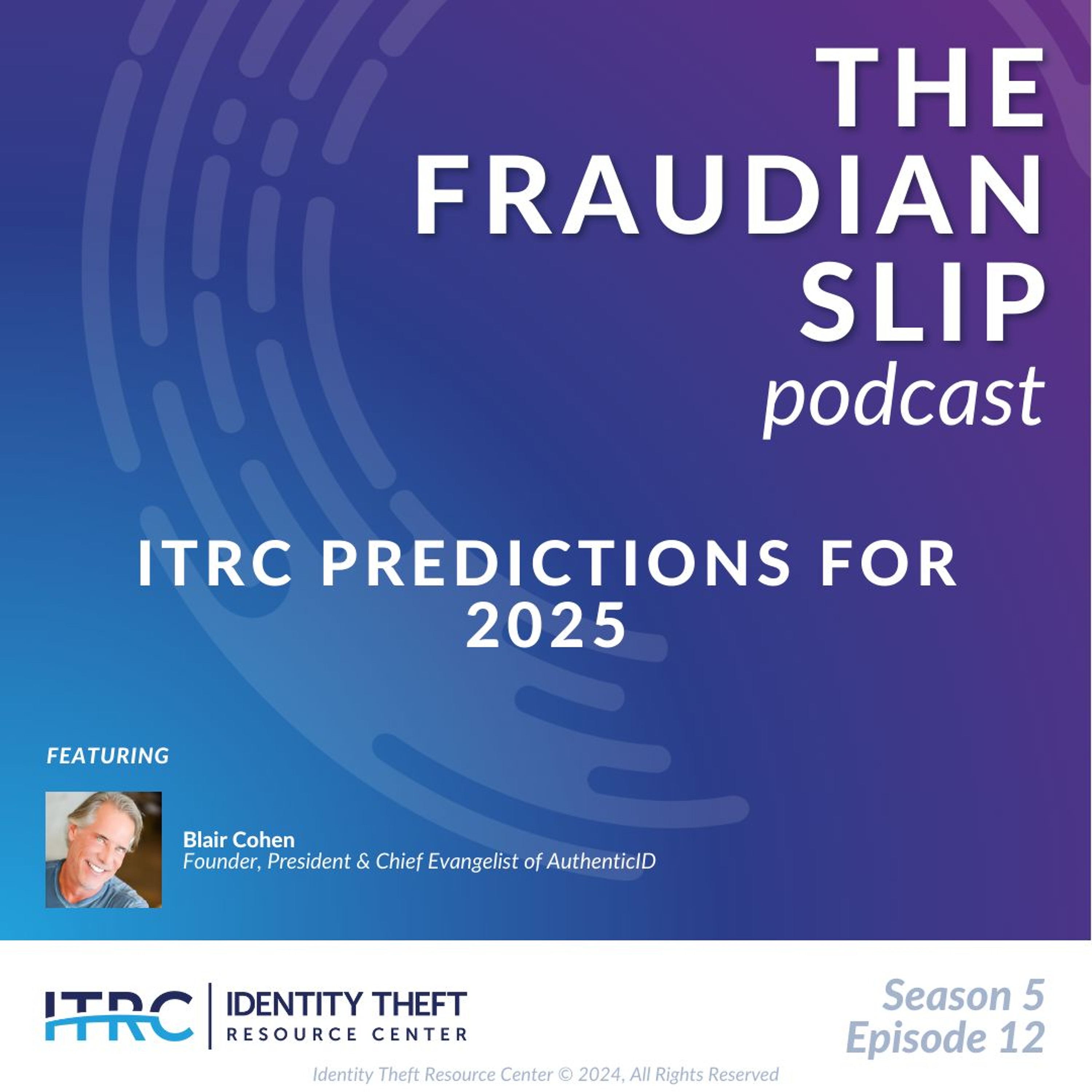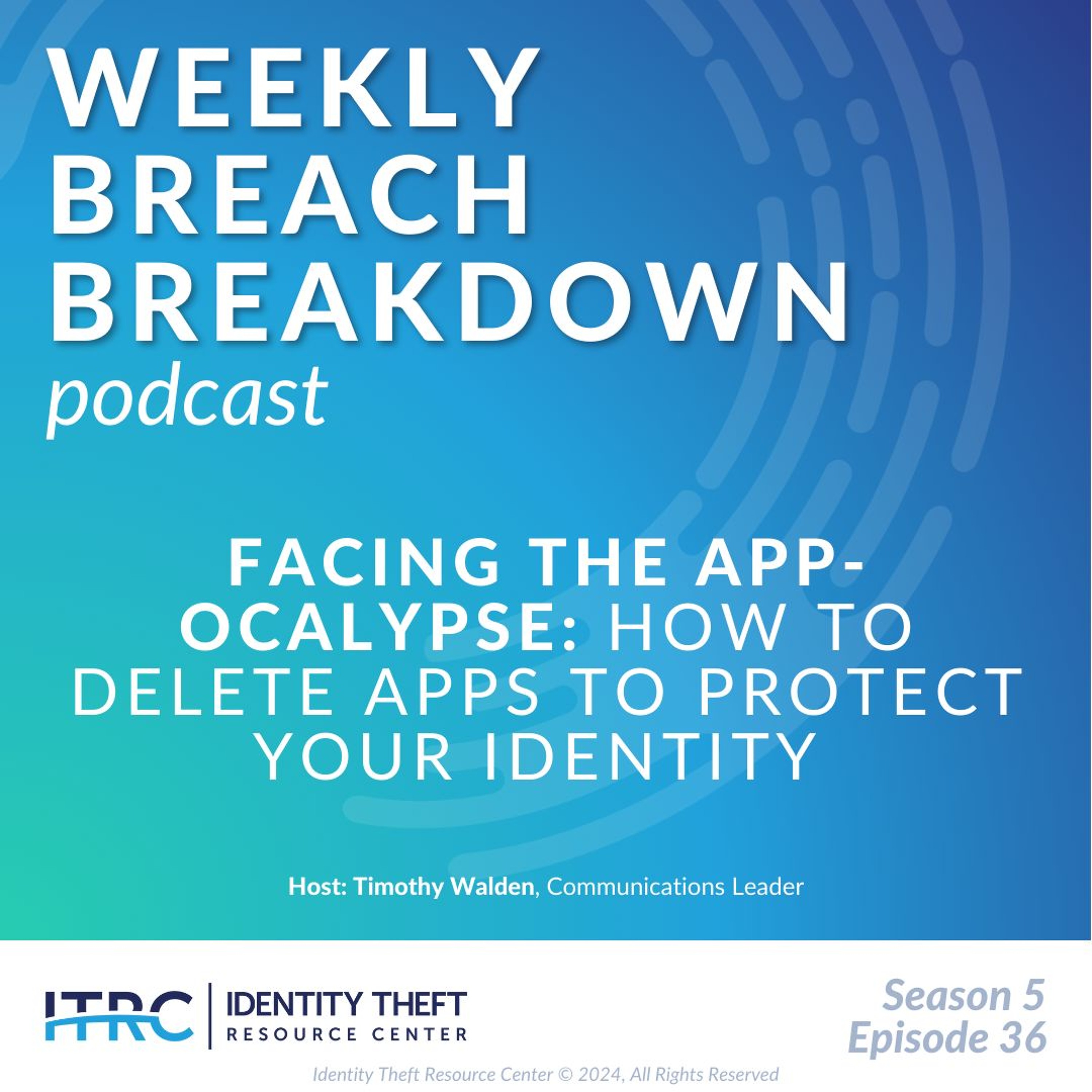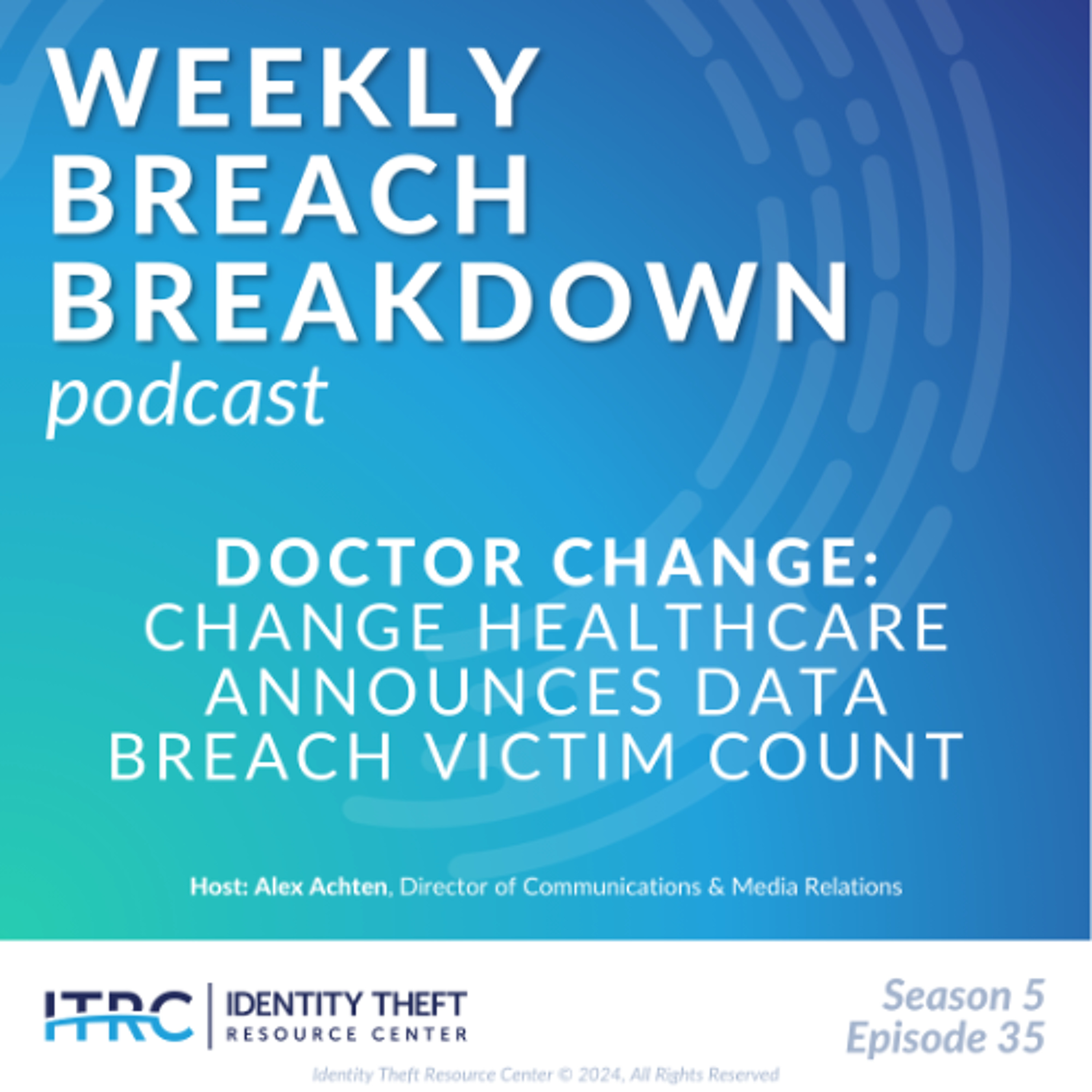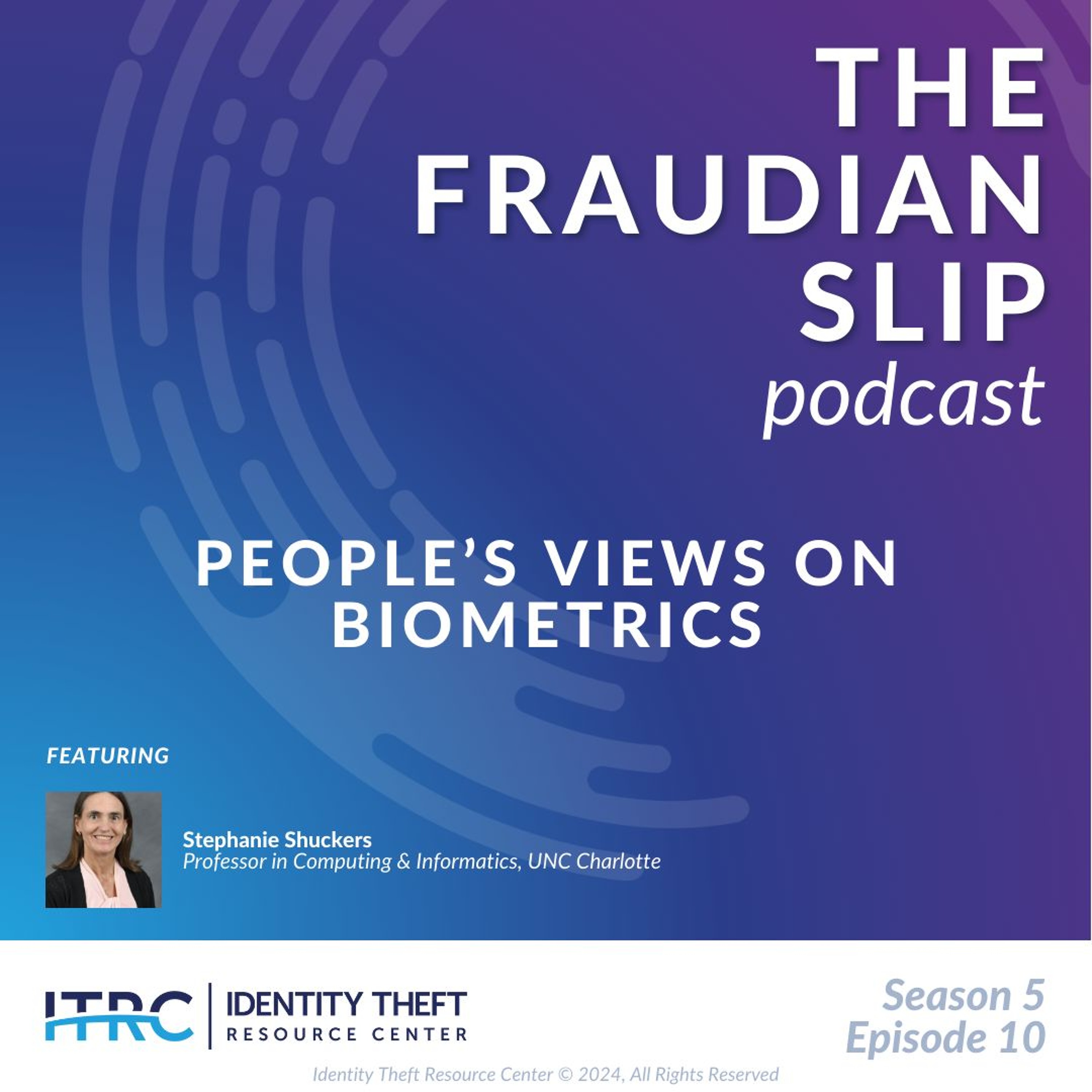If you want to start a rousing debate about how to reduce the number of identity crime victims, just mention the use of biometrics as a way of proving you are who you claim to be. With identity crimes committed using stolen personal information on the rise, it’s a hot topic that often pits privacy against security.
Show Notes
Follow on LinkedIn: www.linkedin.com/company/idtheftcenter/
Follow on Twitter: twitter.com/IDTheftCenter
Show Transcript
Welcome to the Fraudian Slip, the Identity Theft Resource Center’s (ITRC) podcast, where we talk about all things identity compromise, crime and fraud that impact people and businesses. Listen on Apple, Google, Spotify, SoundCloud, Audible and Amazon now. This month’s episode looks at people’s views on biometrics.
If you want to start a rousing debate about how to reduce the number of identity crime victims, just mention the use of biometrics as a way of proving you are who you claim to be. With identity crimes committed using stolen personal information on the rise, it’s a hot topic that often pits privacy against security.
On this month’s podcast, we have Stephane Shuckers from the University of North Carolina in Charlotte, who is also a member of the ITRC’s Alliance for Identity Resilience Advisory Board. We also have ITRC CEO Eva Velasquez to walk us through people’s views on biometrics.
We talked with Stephanie Shuckers about the following:
- What do we generally mean when we talk about biometrics?
- What is the difference between facial recognition and comparison?
- According to the ITRC’s recent study on people’s views on biometrics, almost 63 percent of respondents had severe concerns about providing a biometric to prove their identities. Despite those concerns, nearly 92 percent continued with the process of verifying their identity with a biometric. Why are people concerned about providing that information? Should they be?
- In your work, what are the primary barriers to general acceptance of biometrics in essential transactions?
We talked with Eva Velasquez about the following:
- What is the ITRC’s interest in biometrics?
- According to the ITRC’s recent study on people’s views on biometrics, 87 percent of the 1,100+ people who responded to our survey had to prove their identity in a transaction during the past 12 months. Seventy-four (74) percent of those had to provide some form of a biometric (a face, finger, voice or live video, for example). Did it surprise you that so many people are now providing biometrics?
- It’s the ITRC’s position that biometrics offer the opportunity to reduce the value of stolen data and, therefore, reduce identity crimes. Two-thirds of respondents agreed with the statement: Biometric information helps reduce the chance of someone pretending to be me to open new accounts or access my existing ones. Yet, 38 percent of the same group said biometrics for identification should be banned. What’s up with that?
- One of the more interesting takeaways from this survey was that there were no significant differences between victims and non-victims in their opinions. That is unusual in most of our research. What do you make of that?
Contact the ITRC
If you think you have been the victim of an identity crime or want to avoid becoming a victim, you can speak with an expert advisor on the phone or via text (888.400.5530), chat live on the web or send us an email during our normal business hours (6 a.m.-5 p.m. PT Monday-Friday). Just visit www.idtheftcenter.org to get started.
We will return next week with a new episode of our sister podcast, the Weekly Breach Breakdown, and next month with another episode of the Fraudian Slip.
Listen On
Also In Season 5
-

The Fraudian Slip Podcast - 2025 Predictions
Welcome to the Fraudian Slip…the Identity Theft Resource Center’s podcast where -

The Weekly Breach Breakdown Podcast by ITRC - Copyrightcat - S5E37
Welcome back to the Identity Theft Resource Center’s Weekly Breach Breakdown – s -

The Weekly Breach Breakdown Podcast by ITRC - Facing the App-ocalypse - S5E36
Welcome to the Identity Theft Resource Center's Weekly Breach Breakdown for Nove -

The Weekly Breach Breakdown Podcast by ITRC - Doctor Change - S5E35
Welcome to the Identity Theft Resource Center's Weekly Breach Breakdown for Nove
